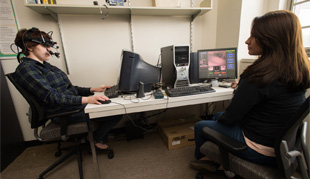“Large Language Models: Boon or Bane?”
“Large Language Models: Boon or Bane?”
2023 Sag Lectures: Some Concepts and Consequences of a Theory of Word Meaning
The trees and the roots: The role of syntacticians in language documentation

The Center for Language Sciences is an umbrella organization at the University of Rochester that brings together faculty, postdocs, and graduate students who conduct research on any aspect of human language as a vehicle for active interdisciplinary work. CLS fosters research and activities that reach across a very broad group of disciplines. Some of its primary disciplines are linguistics, psychology, philosophy, computer science, data science, psychology, cognitive science, music theory, neuroscience, and engineering, covering a wide research focus and range of interests. CLS is a continually evolving organization with a history of serving as a platform for training students and postdocs in interdisciplinary research and enhancing collaborations among members. Our strength is in our diversity, our breadth, and the quality of our connections, collaborations and research.
Ash Asudeh
Director, Center for Language Sciences

Graduate degrees at the Masters and PhD levels are available through individual departments. The CLS serves as a platform to support interdepartmental PhD degrees that focus on interdisciplinary work and training. These interdepartmental degrees have primary department, where a student is admitted and affiliated, and secondary department in another CLS related field.
Learn more about Doctoral and Masters programs in the departments associated with the CLS.